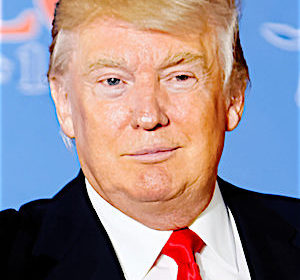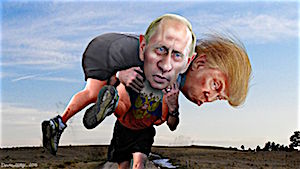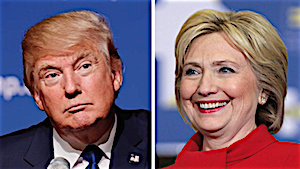So far the election has progressed in a very surprising and historic way. CNN’s Anderson Cooper has called it one of the most momentous elections in modern American political history. Donald Trump has far exceeded expectations. He’s currently well ahead of Hillary Clinton. He may very well take the White House. But even if he doesn’t, his performance has solidified his role as the leader of a political and social movement with strong grass roots support.
A great many Americans are tired of Washington and politics as usual, as they see it, which in the minds of many is synonymous with Hillary Clinton, former Senator, Secretary of State, and First Lady. There is a great deal of fear and pain in the United States. Many ordinary Americans, white and black alike, struggle economically, even though the economy has recovered from the brink over the last eight years, under President Obama’s Administration. Donald Trump’s candidacy has, to a surprisingly strong degree, empowered these angry, downtrodden people. They see in Donald Trump a “tell it like it is” savior, rather than an uncouth character. And the pundits and big data analysts didn’t see this coming. The experts predicted a Clinton landslide. This was clearly not the case.
It’s also very telling that the majority of Trump voters are white, working class people, particularly men, without college educations. This demographic group has suffered economically, as other groups have, and generally doesn’t trust its government, particularly the Federal Government in Washington. More and more they’ve felt ignored and left behind, underserved by impotent governmental institutions they feel don’t look out for their best interests.
The rhetoric of the demographic party is very inclusive, but tends to emphasize the plight of women and people of color, perhaps overlooking the pain of those who don’t fit into these categories. Donald Trump has, it seems, picked up the slack left by the Democrats among white working class people who struggle, and fear for their futures. This may account for much of his surprising success.
To be sure, there’s an obvious dark side to Trump’s success. He’s been accused of bigotry, racism and hate mongering, along with some of his followers. He’s stirred up fears of Muslims, and Mexican immigrants, and his misogyny is well documented. Though this is reprehensible to many, particularly to university educated people, it often strikes a chord with the common man, who senses dangers from abroad, and the unknown, and fears the very changes happening in our society that the educated have learned to embrace.
If Donald Trump wins, then he must make an effort to reach out to the groups he has maligned. After the inevitable end zone dance with his conservative, largely white male base, he must reaffirm to women and minority groups, including American muslims, that he is their President too—-a President for all the people.
In addition to a very possible Trump victory, it appears that the republicans will maintain a stronghold on both houses of congress. If so, he will have the power to effect change on a scale we haven’t seen in many years. He could rework the Supreme Court in a conservative image, and pass legislation favorable to big business and the fossil fuel industry, perhaps at the expense of civil rights, and the environment.
Climate change is a very serious issue, and the science behind it is now well documented, but Donald Trump rejects the danger, along with many republicans. This will have serious implications for life on earth (scientists have confirmed we are in the midsts of a mass extinction, and the ability to grow our crops world-wide may be adversely affected as climate change continues to progress.
But this doesn’t matter to many Trump voters, whose immediate economic problems, and fears regarding safety and security, outweigh these broader concerns. For the democrats to win back power, they must seriously address the grass roots economic and social problems of the common man, not just dismiss them in favor of grander issues. Only then can they hope to consolidate their power enough to solve longer-term problems, like climate change.











